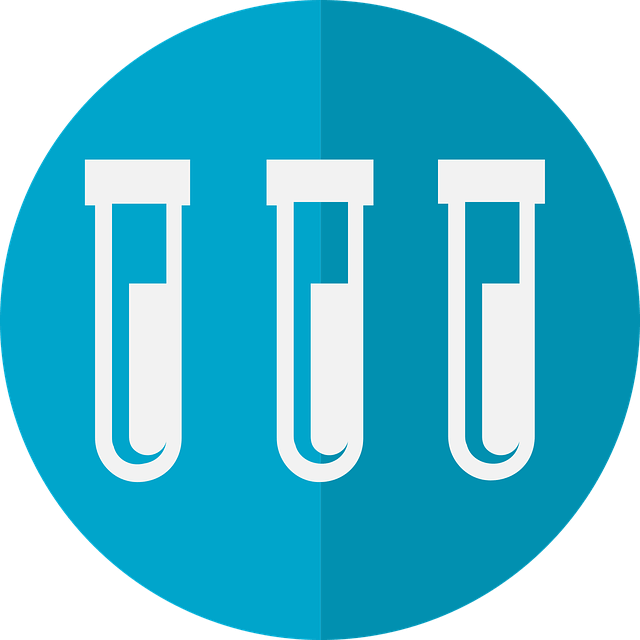The Ultimate Guide To Lowering Triglycerides


A plain-English guide to the most effective, research backed ways to lower blood triglycerides levels
-
Why Lowering Triglycerides Is So Important
How low you should aim for, and when temporarily having higher triglyceride levels is probably not an issue. -
Exercise
What kind, how often, and how much. -
Lower Carbohydrates
How low you should you keep your daily carb intake and which carbs are the worst. -
Get More Fiber
How much fiber you need and why you should eat both soluble and insoluble fiber. -
Increasing Omega-3 Fatty Acids
Why omega-3 fatty acids lower triglicerides and what the best sources are. -
Quit Smoking
How smoking increases your triglycerides.
Why Lowering Triglycerides Is So Important
Triglycerides are the primary way your body stores and transports fatty acids around your body. Your body can absorb them from the food you eat and produce them in your liver from the excess food you eat, especially carbohydrates and alcohol (which is chemically a carbohydrate but nutritionally isn't considered one as it's metabolized differently).
So, why is it important to keep the amount of triglycerides in your blood at a low level?
The main reason is that having chronicaly high triglycerides in your blood is highly-correlated with heart disease, heart attacks, and stroke, significantly more than any of your cholesterol numbers or ratios.
There are various reasons why this is the case, such as increasing the thickness of your blood, which increases blood pressure, and a high triglyceride count means you're probably overeating carbohydrates which also causes heart disease by increasing inflammation of your arterial walls.
How low should your blood triglyceride level be? Looking at what's considered a "normal" upper limit in most medical literature and on lab result reference ranges, it will probably state that anything under 150 milligrams per deciliter (mg/dL) is considered normal.
However, the most recent research shows that even in the 100-150 range, you're still taking on a significant increase in the risk of heart disease, stroke, and heart attack. You should aim for a triglyceride level of under 100 mg/dL; if you're in the 60s, that's fantastic. However, keep in mind that what I'm referring to here are long-term levels of triglycerides. It's perfectly normal to see a jump in triglycerides after a meal, when fasting, or when losing fat (more on this in the Lower Carbohydrates and Reducing Body Fat sections).
Exercise
We all know regular exercise is good for you but specific types of exercise are best for lowering triglycerides as well as having many other health benefits. Aerobic exercise produces the greatest reduction in triglycerides but keep in mind that to qualify as an aerobic exercise, it has to increase your heart rate, breathing rate, and be done for an extended period of time.
High intensity aerobic exercise isn't needed or necessarily good for you overall as it produces a lot of stress on the body. This is why research has shown that lower intensity aerobic exercise done for longer periods of time correlates with a longer life when compared to higher intensity aerobics or weight lifting.
If you have an Apple Watch or other wearable device which can measure your VO2 max (the maximum amount of oxygen your body can consume while exercising), aim for an aerobic exercise which keeps you right around 60% of your VO2 max.
If you don't have a device to measure your VO2 max, use a device to measure your heart rate or check it manually by counting your pulse for 15 seconds, then multiplying that by 4.
You'll want to keep your heart rate around 60% of your max heart rate, which you can calculate the easy way by subtracting your age from 220. A more accurate way to calculate your max heart rate is to multiply your age by 0.67, then subtract that from 206.9.
The calculator below uses the more accurate method.
Max Heart Rate Calculator
Lower Carbohydrates
This is the big one! For most people, consuming excess carbohydrates is the primary reason for having high triglycerides. To put it simply: Keep your carbohydrate intake to a minimum. This doesn't mean you have to do the keto or carnivore diet, although there's nothing wrong with them if done properly, overly restrictive diets are much less likely to be a diet you stick to and you want to find a diet you can stay on for a lifetime, not just for a few weeks or months.
How low should you keep your carb consumption? First, you need to understand the difference between total carbs and net carbs when reading nutritional labels. Total carbs will count the amount of fiber in a food, which are carbohydrates but in a form your stomach can't digest and won't raise your blood sugar or triglycerides. Net carbs are the carbohydrates your body will metabolize into blood sugar.
So, it's net carbs you want to keep to a minimum. How low? Aim for around 50 grams of net carbohydrates a day. If you're doing keto, you'll probably be targeting more around 30 grams or lower.
But what about "natural" sugar, like you get from fruit... Aren't they better for you than processed sugar or refined carbohydrates in bread, chips, noodles, flour, etc.?
No, in fact, the sugar you find in fruits, called fructose, are actually worse for you than other forms of sugar as they are directly metabolized in the liver and converted to triglycerides.
This doesn't mean you should never eat fruit though; you just need to choose fruit which have the most nutrients and fiber for the amount of sugar they contain or stick with fruits that have no sugar such as avocados (yes, they're a fruit).
Rather than fruit, focus on eating vegetables. Not only do they have little to no sugar compared to fruit but generally are more nutritionally dense and contain more fiber.
Sugar can be very addictive but the good news is, you can generally get over the cravings when going low carb in as little as 4-5 days. The best thing to do is keep healthy foods and snacks high in fiber, healthy fats, and protein around with no sugar or artificial sweeteners (more on these later).
The moment you start to feel a craving for carbs, eat your high fiber/protein/fat snack instead. Pickles, cucumbers, almonds, avocado, raw carrots to name just a handful of easy snacks to keep around which you can quickly eat to get rid of those cravings.
Artificial Sweetners
Nearly all sugar substitutes have side effects you don't want. Whether it's changing your gut microbiome for the worse (the bacteria in your stomach and intestines which play a big role in your health), causing neurological damage like aspartame, or actually giving your body sugar indirectly when metabolized by your gut bacteria, sugar substitutes are best avoided unless you're making something sweet tasting for a rare occasion.
I've even seen "sugar substitutes" sold as being great for diabetics which contained a large amount of sugar in the form of maltodextrin which has DOUBLE the glycemic load of regular table sugar!
The only sugar substitute I can recommend based on the latest research is monk fruit extract. So far, all the evidence shows that monk fruit extract doesn't raise blood glucose, triglycerides or affect your gut bacteria.
I've personally used monk fruit extract in baking and while no sugar substitute tastes 100% like regular table sugar, it is very, very close.
Get More Fiber
Getting enough fiber can help improve many aspects of your health and there's around a dozen types of fiber which have different effects on your body. But to keep things simple, just know that there are two main types of fiber: soluble and insoluble.
Soluble fiber mixes with water to create a thick, gel like texture. This helps to coat your intestines, making it more difficult for your body to absorb fat, cholesterol and sugars. This is how it helps reduce triglycerides directly, but it also helps in indirect ways such as increasing insulin sensitivity. When your insulin sensitivity is high, your body can better metabolize triglycerides so they don't circulate in your blood or build up in your liver causing fatty liver disease.
Soluble fiber is also a food for healthy gut bacteria which produce short-chain fatty acids and these have been shown to lower the production of triglycerides in your liver.
Increasing Omega-3 Fatty Acids
Omega-3 fatty acids are essential nutrients that the human body needs to function properly. They are a type of polyunsaturated fat that is found in high concentrations in certain types of fish, such as salmon, mackerel, and sardines, as well as in other food sources like flaxseeds and walnuts. Omega-3 fatty acids have been shown to provide numerous health benefits, including reducing triglycerides in the bloodstream.
Triglycerides are a type of fat that is found in the blood. High levels of triglycerides can increase the risk of heart disease and other health problems. Omega-3 fatty acids have been shown to reduce triglyceride levels in several studies.
One study published in the Journal of the American Medical Association (JAMA) found that omega-3 fatty acid supplements can significantly reduce triglyceride levels in patients with high triglyceride levels. The study involved 483 participants with high triglyceride levels who were given either omega-3 fatty acid supplements or a placebo. The results showed that those who took the omega-3 fatty acid supplements had a 25% reduction in triglyceride levels compared to those who took the placebo.
Another study published in the journal Circulation found that consuming fish oil, which is high in omega-3 fatty acids, can lower triglyceride levels in people with high triglyceride levels. The study involved 94 participants who were given either fish oil supplements or a placebo. The results showed that those who took the fish oil supplements had a 28% reduction in triglyceride levels compared to those who took the placebo.
A third study published in the Journal of Nutrition found that consuming omega-3 fatty acids can reduce triglyceride levels in healthy individuals as well. The study involved 27 healthy adults who were given either omega-3 fatty acid supplements or a placebo. The results showed that those who took the omega-3 fatty acid supplements had a 29% reduction in triglyceride levels compared to those who took the placebo.
The mechanism by which omega-3 fatty acids reduce triglycerides is not completely understood, but it is thought to involve several different factors. One possible explanation is that omega-3 fatty acids can reduce the production of triglycerides in the liver. Another possible explanation is that omega-3 fatty acids can increase the breakdown of triglycerides in the bloodstream.
In addition to reducing triglycerides, omega-3 fatty acids have been shown to provide numerous other health benefits. These include reducing inflammation, improving brain function, and reducing the risk of heart disease. To get the benefits of omega-3 fatty acids, it is recommended that individuals consume at least two servings of fatty fish per week or take a fish oil supplement.
Quit Smoking
Smoking has been found to decrease insulin sensitivity which makes it more difficult for your body to metabolize triglycerides, leaving them to circulate in your blood or build up in your liver.
Smoking also increases general inflammation in the body which triggers the release of free fatty acids from your fat cells and these then get converted into triglycerides by your liver if you're not getting enough physical activity to use them for energy.
Smoking has been found to increase triglycerides is by changing how your body metabolizes cholesterol, leading to an increase in very-low-density lipoprotein (VLDL) which carries triglycerides in your blood.
Finally, if you smoke, it impairs your ability to be as physically active as you normally would and as we already covered, exercise plays a big role in lowering triglycerides.

